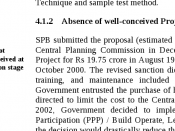Giant Store Case
1. Management assertion of completeness is of primary concern to an auditor because of the nature of accounts payable, which is prone to understatement.
2. The nature of "search for unrecorded liabilities" as a year-end substantive test for a client's current liability is to make sure they are not understated. Auditor can send out confirmation letter and ask client for a list of liabilities, they could also seek for the subsequent activities to make sure these liabilities have been paid. In this case, if the client did pursue those "credit" and directly confirm these credit from Giant Store's suppliers, the fraud may have been detected.
3. Touche Ross can stratified the sample and randomly select credits from these pre-sorted block to test the material accuracy of the purported advertising credits. The sample size shouldn't be too small.
4. Validity of audit evidence collected via telephone confirmation is compromised because via telephone the client can manipulate the information, they may not come from the right person the auditor wants to talk to.
If the confirmation via mail is not viable and the audit is sure the phone client dialed is the client they want to talk to, and the client hasn't inform the person they called in advance, the confirmation may be perceived creditable.
5. The return rate for confirmation of account payable may well exceed that of account receivable, so for account payable, supplement control may only include letter to the legal councilor to confirm the contigent legal liabilities and the subsequent follow-up of payment of accounts payable. But for account receivable, the return rate may be too low to be relied on, so a list of supplemental measures including the directly calling and check of subsequent payment may be greatly pursued.
6. The...


